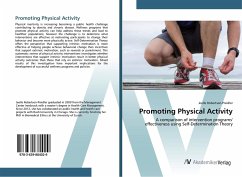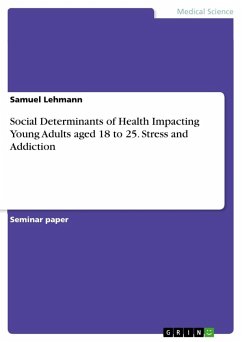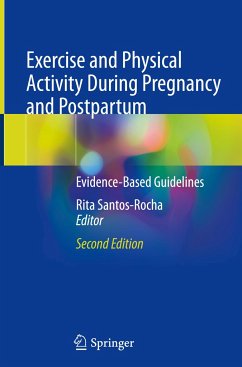
Promoting Physical Activity
A comparison of intervention programs' effectiveness using Self-Determination Theory
Versandkostenfrei!
Versandfertig in 6-10 Tagen
27,99 €
inkl. MwSt.

PAYBACK Punkte
14 °P sammeln!
Physical inactivity is increasing becoming a public health challenge contributing to obesity and chronic disease. Wellness programs that promote physical activity can help address these trends and lead to healthier populations; however the challenge is to determine what interventions are effective at motivating participants to change their behavior and become more physically active. Self-Determination Theory offers the perspective that supporting intrinsic motivation is more effective at helping people achieve behavioral change than incentives that support extrinsic motivation, such as rewards...
Physical inactivity is increasing becoming a public health challenge contributing to obesity and chronic disease. Wellness programs that promote physical activity can help address these trends and lead to healthier populations; however the challenge is to determine what interventions are effective at motivating participants to change their behavior and become more physically active. Self-Determination Theory offers the perspective that supporting intrinsic motivation is more effective at helping people achieve behavioral change than incentives that support extrinsic motivation, such as rewards or punishment. This systematic review of physical activity interventions investigates whether interventions that support intrinsic motivation result in better physical activity outcomes than those that rely on extrinsic motivation. Mixed results of this investigation have important implications for the development of successful wellness programs and policies.












